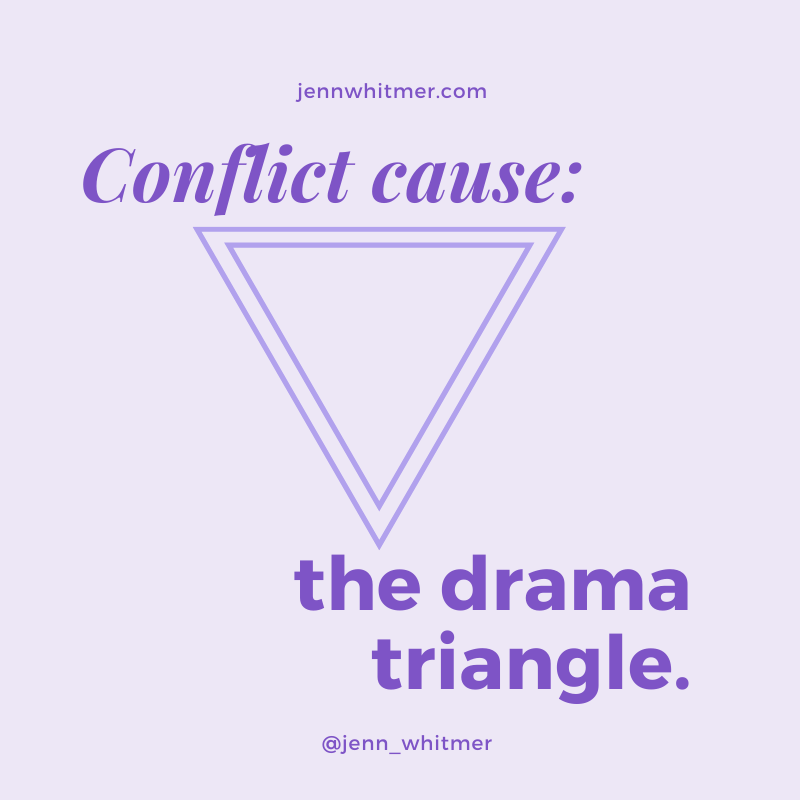Everyone in the drama triangle is headed in the wrong direction.
Here’s how this often goes down:
Jane, the villain, does something that annoys Stan, the victim.
Stan stews a little on his annoyance.
Stan talks to his co-worker Sylvia about Jane.
Sylvia, the hero, goes to Jane and tells her to stop annoying Stan.
Jane, new victim, is angry that Sylvia, new villain, brought up Stan’s issue.
Jane talks to co-worker Jim about Sylvia and Stan’s immaturity.
Jim, new hero, goes to Sylvia and Stan and tells them they are difficult team members and stop picking on Jane.
Sylvia and Stan are angry at Jim’s accusation.
In a team meeting, Stan condemns Jim and Jane for not doing their jobs…
Are you tired yet? This is the drama triangle and how it grows.
The original issue is never resolved, new people are sucked in, and drama is piled on.
This triangle is repeated in workplaces, teams, churches, and families. We’ve all done it in some form. And in some way, enjoyed our roles—ouch. There is a fast, but cheap camaraderie that comes from gossip and complaining to others. There is a power that comes from rescuing. And a release of responsibility when the victim gives up ownership of their problem.
To avoid the drama triangle, we have some choices to make.
Pull around or Go Back
Decide if you can overlook the issue. Sometimes, it’s better to work through the issue internally and remove yourself from the drama triangle entirely. Other times, it’s a kindness to confront. Here’s a helpful guide to know the three times it’s helpful to go back to the offender and discuss the issue. Overlooking or confrontation puts you in the right direction to resolve the original issue.
Point Back
Someone comes to you to talk about another person. You are now the Hero in this drama.
Your first response:
“Have you talked to them?”
Always ask if the victim has overlooked the issue or confronted the villain. They need a U-turn from you the hero, back to the other person.
If you are in a role such as a manager, parent, or teacher, you will have to decide which is the more appropriate response:
“When will you talk with them? I’ll check back with you to see how it went.”
Or
“Do you need support? We can go together.”
While it is usually best for the person just to go back, there are some issues or people who need more support in that conversation.
If you are not in that authority role to help solve the problem, you can kindly add to your U-turn statement:
“I think I’m not the person to help you.”
This removes you from the drama triangle and places responsibility where it belongs. Pointing back the path toward resolving the original issue without adding people in inappropriate positions.
Pull around, go back, or point back responses guide people in resolving the original issue in healthy and responsible ways.
Have you ever been trapped in the drama triangle? How do you get out?
(Important note: This is not for cases of abuse, assault, or other severe issues. Always involve a third party with authority to handle abuse or assault.)

COMMENTs:
0